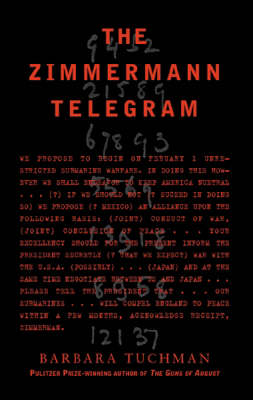Reviewed by clq on
So... the book is about the Zimmermann Telegram, an important piece of correspondence that had some impact on the political events around World War 1. The book is the story of the circumstances surrounding this telegram, and the people involved in it. Being as ignorant as I am (was?) about the first world war, this actually worked not only as an interesting history lesson, but also as a bit of a "what will happen next" kind of story. While I knew the generalities around America's involvement in the war, I didn't know much about the circumstances leading up to it.
Though, I must admit, I struggled a little with the book at first, but it turns out I was doing it wrong. I was reading it in chunks, on the bus, on a plane, ten minutes here and ten minutes there. That's the wrong way of reading this book. Half way through I realised that I was spending more time trying to remember what had actually happened and where what I was reading fit into the greater picture than I spent reading, and it wasn't really enjoyable. I went back, almost to the start, and re-traced my steps in one sitting, and only then did I appreciate how good of a job this book really does at conveying this story. It's interesting, engaging, funny at times, and told it a page-turning way. Even though the ending is known, the specifics of what the people involved said and did are probably less so, and some of it is really fascinating.
This is a short, relatively easy, read, but it does require some focus. And if anyone, like I did, thinks "The Zimmermann Telegram, what is that?", then this book is almost certainly as good a way as any of educating yourself of it in an entertaining way.
Reading updates
- Started reading
- 28 April, 2017: Finished reading
- 28 April, 2017: Reviewed
